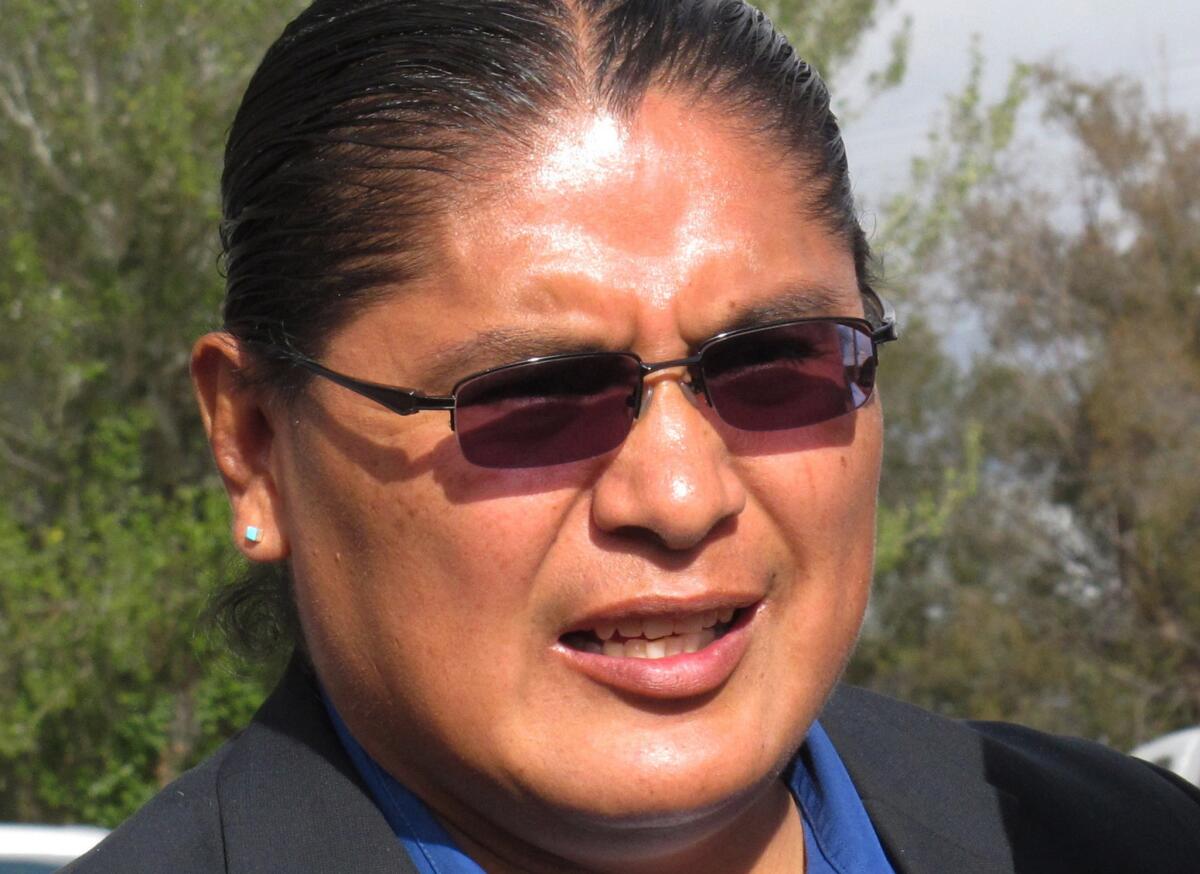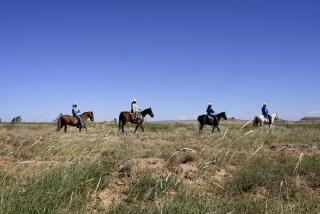Navajo presidential candidate removed from ballot over language issue

- Share via
The Navajo Nation’s top court on Wednesday tossed one of the presidential candidates off of the ballot, ruling in a case that touched a raw cultural nerve.
In a three-page decision, the Navajo Supreme Court upheld earlier rulings that Christopher C. Deschene was not qualified to seek the tribe’s top elected post after the candidate refused to demonstrate whether he is fluent in the Navajo language.
Tribal law requires presidential candidates on the reservation, the largest in the U.S., to be fluent in the language, part of the Navajo cultural identity as well as a practical necessity in a region where many people adhere to the traditional ways and language.
Ruling on technical grounds, the court held that Deschene did not include a copy of his disqualification order with his notice of appeal, thus his request to overturn the decision of the Office of Hearings and Appeals was dismissed by the court.
“Any litigant who is serious about his case will ensure that all of the court’s jurisdictional requirements are satisfied,” the justices wrote.
The ruling is final and no further appeal is possible, the judges said.
Because the Navajo Nation is sovereign, it has its own set of election rules and a court system apart from the U.S. state and federal legal system.
Linguistic fluency among elected candidates is among the requirements “that are most authentic to the Navajo Nation,” Jared Touchin, communications director for the office of the speaker of the legislative branch, told the Los Angeles Times. He said the federal courts tended to defer to the tribe on these types of domestic issues.
The linguistic requirement has been part of the Navajo code for decades, Touchin said.
The Navajo Nation is divided into chapter houses, comparable to legislative districts, and the elections draw voters to hear candidates.
“A lot of people attend and they are predominantly elderly,” Touchin said. “They speak Navajo fluently and may not speak English,” so the requirement helps ensure that the voters can understand the candidates.
During the campaign, however, the requirement took on added significance as candidates argued that language was tied to how the Navajo see themselves as a people.
Deschene, who did not return calls or email about the ruling, has maintained that he is proficient in the language, but he has refused to take a fluency test.
Richie Nez of the tribe’s Office of Hearings and Appeals said he had no choice but to disqualify Deschene after the candidate failed to prove he could speak fluent Navajo, according to the court papers in the case.
Deschene finished second in the Aug. 26 primary won by Joe Shirley Jr.
With Deschene out of the race, the third-place finisher, Russell Begaye, will face Shirley in the Nov. 4 presidential runoff.
Follow @latimesmuskal for national news.
More to Read
Sign up for Essential California
The most important California stories and recommendations in your inbox every morning.
You may occasionally receive promotional content from the Los Angeles Times.














